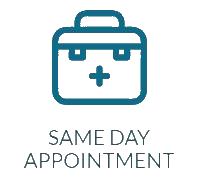Website built by:
UPPER GI ENDOSCOPY (EGD) IN MANHATTAN

What Is An Upper Endoscopy?
An upper endoscopy, also known as an upper GI endoscopy or an EGD, is a procedure that examines the lining of the esophagus, stomach, and duodenum (the first portion of the small intestine).
Benefits Of Getting An Upper Endoscopy
The benefits of getting an upper endoscopy include:
- Abnormalities, like inflammation or bleeding that don’t show up well on x-rays, can be seen through the endoscope
- Polyps and tumors can be discovered at an early stage
- Instruments can be inserted into the scope to treat bleeding abnormalities or remove samples of tissue for further testing (biopsy)
Candidates For An Upper Endoscopy
- Stomach pain
- Upper belly pain or bloating
- Difficulty swallowing
- Upper GI bleeding
- Digestive tract bleeding
- Nausea and vomiting that won’t go away
- Heartburn

What Conditions Can An EGD Diagnose?
An EGD may be used to diagnose suspected conditions such as:
- Peptic ulcers
- Tumors
- Polyps
- Celiac disease
In some cases, an upper endoscopy may also be used to collect tissue samples (biopsies), remove polyps and relieve certain swallowing problems.
The Upper Endoscopy Procedure
Prior to undergoing an upper endoscopy, a local anesthetic may be applied to the back of your throat and you will be given a sedative intravenously to help relax and sedate you. This will ensure that you feel no discomfort throughout the entire procedure.
During the procedure, a thin scope (endoscope) with a camera at its tip will be inserted into your mouth, through your esophagus and into your stomach. This outpatient procedure typically takes a total of 20 to 30 minutes.
Where Will My EGD Be Performed?
We perform upper endoscopies at Carnegie Hill Endoscopy in Upper East Side, a 15,000 square foot, state-of-the-art ambulatory surgery center (ASC), which opened in 2012. Carnegie Hill Endoscopy solely offers GI services, including colonoscopy, upper GI endoscopy, flexible sigmoidoscopy and hemorrhoid treatment. The center partners with New York City-based Mount Sinai Beth Israel and Physicians Endoscopy. Accreditation Association for Ambulatory Health Care accredited the center and the American Society for Gastrointestinal Endoscopy recognized it for quality. To learn more about Carnegie Hill Endoscopy, please visit www.carnegiehillendo.com.
What To Expect After The EGD Procedure
After the procedure, you will be monitored until the sedatives wear off. Occasionally, patients may have a mild sore throat and may feel bloated due to the air introduced to the stomach during the test. You will be able to go home and resume normal diet and activities following the procedure.
Schedule A Consultation
If you have any symptoms that may warrant an upper endoscopy, the first step is scheduling a consultation with an experienced gastroenterologist. Park Avenue Medical Professionals is home to physicians who specialize in gastrointestinal disorders and we are known for our compassionate care and personalized approach. Schedule an appointment today by contacting our office at 212.427.2000. You can also make an appointment by filling out this form.



